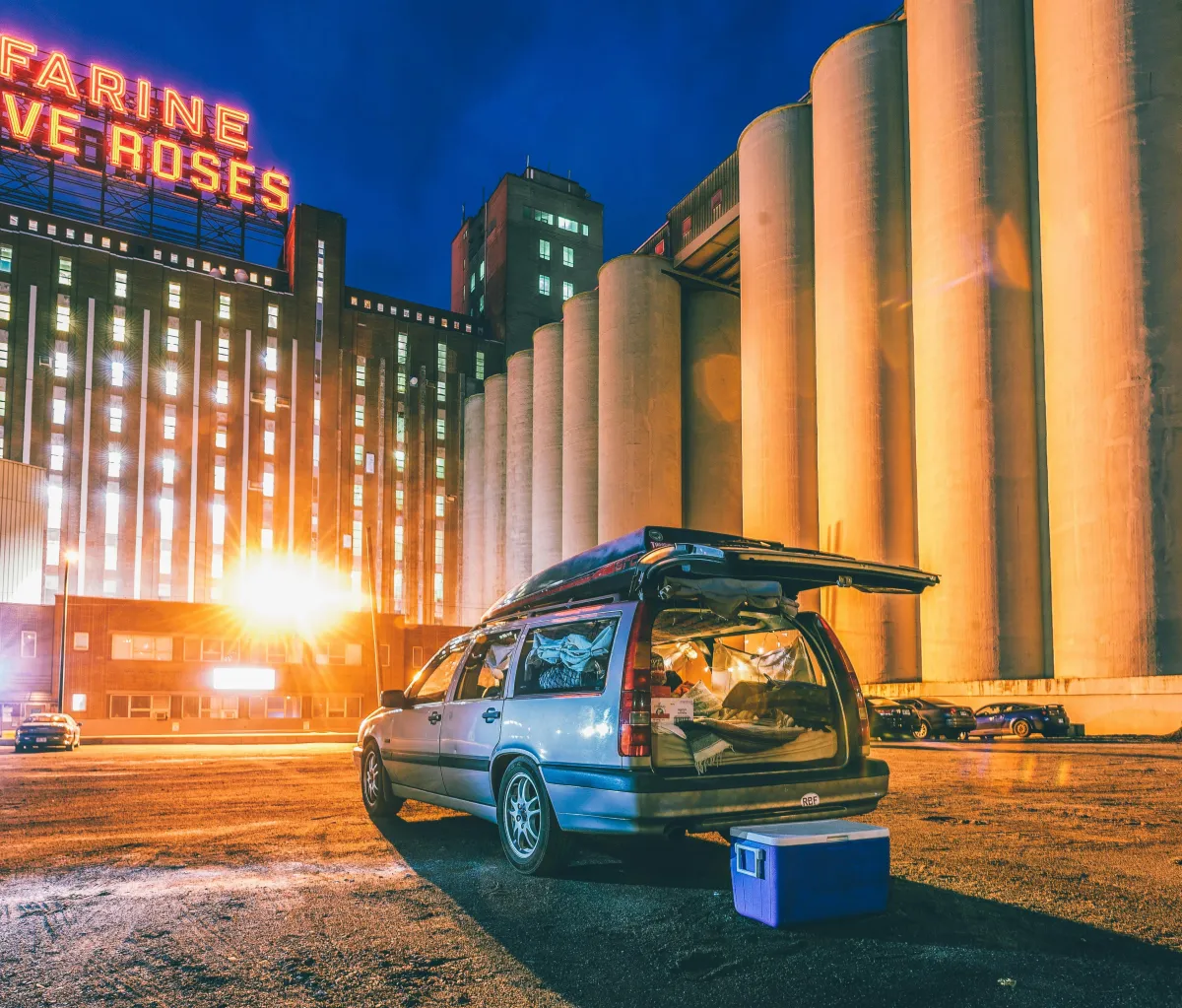Discover The Latest Blogs
Stay updated with Our Informative Blog Posts

Road Trip Nutrition: When "Close Enough" Isn't Good Enough - Paul Oneid
Road Trip Nutrition: When "Close Enough" Isn't Good Enough
You're 6 weeks out from your meet. Or you're in the final push of your training block. Or you're deep enough into prep that your physique changes are finally visible and you're not about to let up now.
Then your husband books a weekend trip. Or your in-laws expect you for the long weekend. Or there's a competition three states away.
And suddenly you're staring down a 4-hour drive with a cooler full of question marks and a gas station full of temptations.
Here's what most people do: they either pack nothing and tell themselves they'll "find something," or they pack food that's questionable by hour two and definitely spoiled by the time they check into the hotel.
Then they eat it anyway. Or they don't. Either way, the day is compromised, the next day is reactive, and by the time they're home, they've lost a week of progress.
You know you're capable of more than that.
This Isn't About Perfection—It's About Preparation
Let me be direct: if you're serious about your goals during a phase that requires strict adherence, you need to be the person who over-prepares.
Not because you're obsessive. Not because you're inflexible.
Because you respect yourself and your goals enough to make them non-negotiable, even when it's inconvenient.
The version of you that achieves what you're working toward is the version that figures this out. Not by trying harder. By thinking smarter and preparing better.
The Real Problem: Temperature and Time
Your food doesn't spoil because road trips are hard. It spoils because most people don't understand how coolers actually work.
Here's what I do, and what I recommend to every client who's traveling during a critical training phase:
The Dual-Zone Cooler Strategy:
Pack some food frozen solid, some refrigerated. The frozen items act as additional ice packs while slowly thawing to an edible state over the course of the day.
Bottom layer: Frozen meals in sealed containers (these are your dinner options for day 1-2)
Middle layer: Ice packs
Top layer: Refrigerated meals for immediate consumption (today's meals)
Pro tip:Freeze your protein shakes if you're bringing them. They'll be perfectly slushy by mid-afternoon.
The Hotel Audit You Need to Do
Before you book, before you pack, you need to confirm three things:
Does the room have a fridge?Not a mini-bar. An actual fridge with adjustable temperature. If not, can you request one?
Does it have a freezer compartment?Even a small one lets you refreeze ice packs and keep day 3-4 meals frozen.
Is there a microwave?In-room is ideal. Down the hall in a common area is manageable. None means you're eating cold food for 72 hours.
If the answer to all three is no, you have two options: choose a different hotel, or bring backup freezer bags and plan to use the ice machine multiple times per day.
Yes, this is tedious. No, it's not optional if your goal matters to you.
The Lunch Box for Daily Trips
Once you're at your destination, you need a separate small cooler or insulated lunch box with fresh ice packs for daily outings.
Your main cooler stays in the hotel. Your lunch box comes with you—to the meet, to your in-laws' house, to the tourist trap your family insists on visiting.
This is the bag that makes you "that person." The person who pulls out tupperware at a rest stop. The person who eats their prepped meal in the parking lot while everyone else goes into the diner.
And that's exactly who you need to be right now.
Managing Kids and Temptation
If you're traveling with your toddler, this gets more complex but not impossible.
The reality: he's going to want gas station snacks. He's going to see the candy. He's going to ask why you're not eating what he's eating.
What works:
Pack his snacks separately, in a different bag. Out of sight reduces your temptation.
Pre-decide your bathroom stop strategy. Go in, use the bathroom, get back to the car. Don't browse.
If he needs a treat, let him pick it while you wait in the car. Your husband or whoever's with you can handle that transaction.
Use the time in the car to eat your own food while he's entertained/sleeping.
You're not depriving yourself. You're not missing out. You're choosing your goal over momentary convenience. That's different.
The Identity Piece
Here's what this is actually about:
Every time you choose to pack the cooler, confirm the hotel accommodations, and eat your prepped food instead of "just getting something quick," you're reinforcing your identity.
You're not someone whotriesto eat well. You're someone whodoeseat well, even when it's inconvenient.
That identity—that version of you—is who achieves the goal you're working toward.
Not because you're more disciplined than everyone else. Because your actions match who you've decided to be.
This isn't hard. It's tedious. But tedious and simple is infinitely better than reactive and compromised.
The Tactical Checklist
For your next road trip during a strict phase:
Before you leave:
Freeze 40-50% of your trip meals 24 hours in advance
Keep the rest refrigerated until pack time
Confirm hotel has fridge/freezer/microwave
Pack your daily lunch box with fresh ice packs
Bring extra ziplock freezer bags for ice machine backup
In the car:
Keep cooler in the coolest part of the vehicle (not the trunk in summer)
Minimize opening the cooler—take out what you need, close it immediately
Plan your meals around stops, not the other way around
At your destination:
Immediately check fridge temperature, adjust if needed
Refreeze ice packs overnight
Set phone reminders for meal times (yes, even on vacation)
Real Talk
The version of you that reaches your goal is the version that doesn't negotiate with herself when it's inconvenient.
You already know how to do this. You already have the discipline. You're not lacking anything.
You just need permission to be hyper-prepared. To be "that person."
This is that permission.
You can absolutely enjoy your trip, be present with your family, and stay on plan. Those things aren't in conflict. They're only in conflict if you don't prepare properly.
This is what I mean when I talk about raising the bar. It's not about doing more. It's about respecting yourself and your goals enough to make them work, even in non-ideal circumstances.
If you're heading into a critical training phase and want help building systems that travel with you, reply to this email.Tell me about your upcoming travel and where you're getting stuck. I'll give you a specific strategy for your exact situation.
The best version of you doesn't compromise when it gets inconvenient. She just plans better.
P.S.The frozen meal strategy alone will change how you think about road trip nutrition. Your "emergency" meal for day 3 is already in your cooler, thawing perfectly. Start there.
Stay Strong,
Paul Oneid, MS. MS. CSCS
Founder and Head Coach




